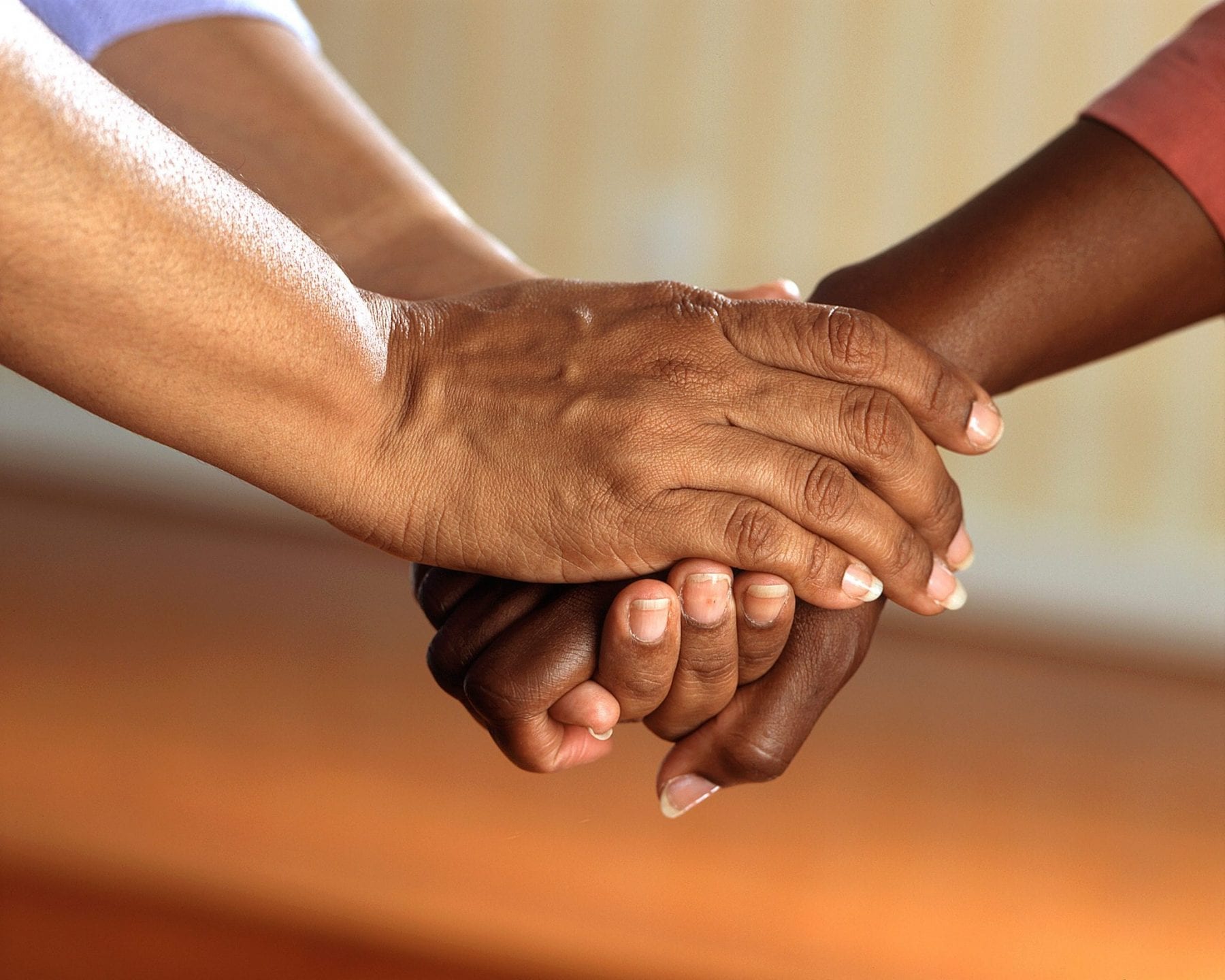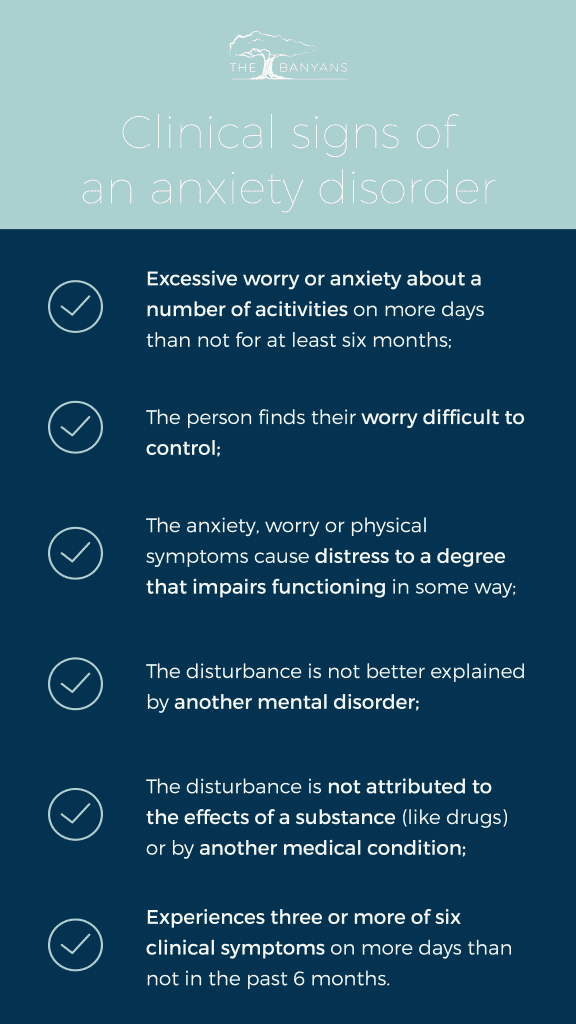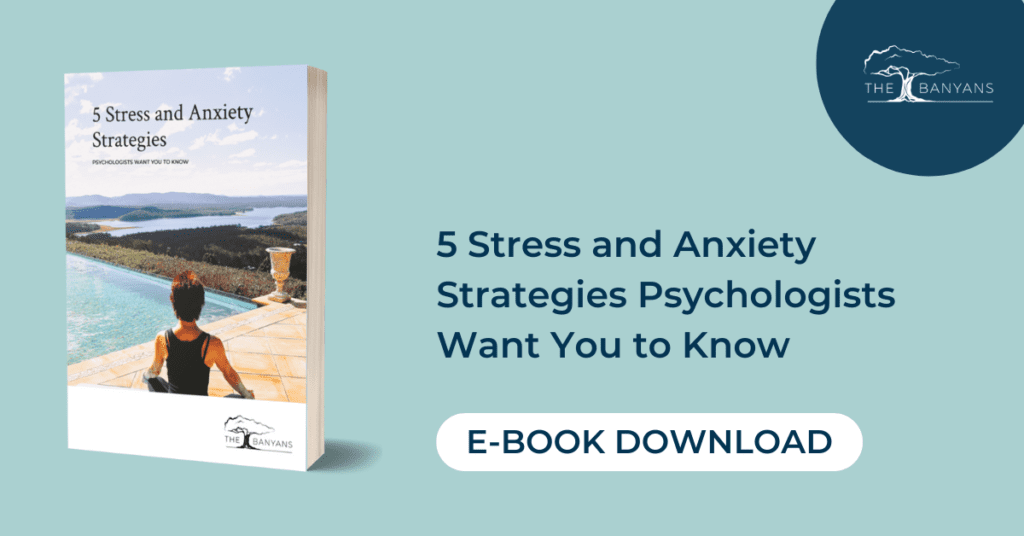
You may find this article helpful if you:
- Want to learn more about how to help someone with anxiety.
- Want to learn more about anxiety disorders in general.
- Are exploring options for support, treatment and recovery from an anxiety disorder.
It can be heartbreaking to watch a loved one struggle with anxiety and not know how to help. Knowing how to help someone with anxiety can feel confusing for many; what do you say that won’t make it worse? Read on to learn five essential tips that can help.
If you are reading this, you’re likely a big part of helping someone with anxiety. A support person in this capacity is anyone who:
- Cares about another person experiencing an anxiety disorder.
- Provides emotional or physical support regularly.
You could be a support person for a colleague, friend, parent or sibling. Being a support person can feel like a burden at times. You may watch your loved one struggle with anxiety daily. Their anxious symptoms may lead them to miss out on events and activities they used to enjoy, and you may feel completely unable to help them.

Being a support person can feel like a burden at times. You may watch your loved one struggle with seemingly uncontrollable symptoms. Their anxious symptoms may lead them to miss out on events and activities they used to enjoy, and you may feel completely unable to help them.
What is anxiety?
Anxiety is a normal part of life. It has valuable properties and has often kept us alive by encouraging us to flee from danger.
An anxiety disorder, however, is much more serious. An anxiety disorder develops when the feelings of fear or nervousness do not pass with the stressor or arise without reasonable cause. Physical symptoms and significant disruption to everyday life often accompany these feelings.
This infographic provides a clear overview of what an anxiety disorder can show in someone’s life:
RELATED ARTICLE: Signs and symptoms of anxiety
The importance of social support for anxiety
Social support and interaction have been identified as a psychological aid for mental health recovery and relapse prevention. Although this may seem obvious, many people with anxiety often wish to isolate themselves from social connections, making it difficult to reap the benefits from this natural mood booster. It can also make it more difficult for those helping someone with anxiety.
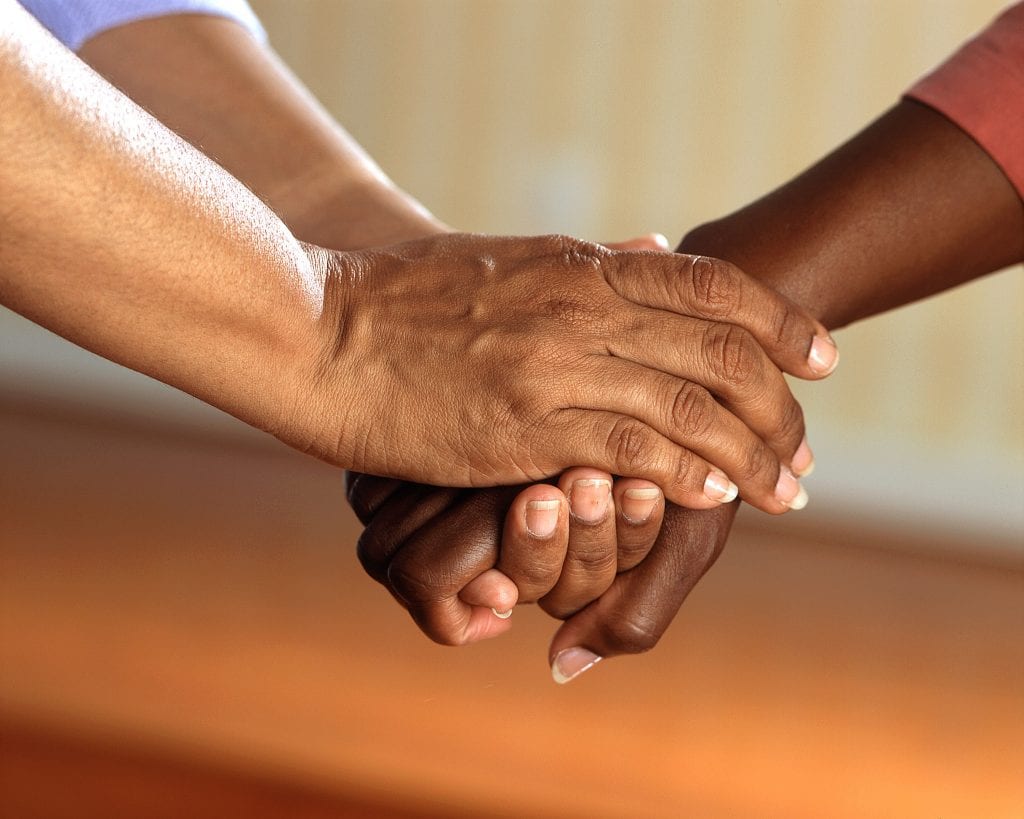
In addition, those experiencing an anxiety disorder – especially social anxiety – can struggle to maintain strong social skills in light of their anxious thoughts and symptoms. They may find it difficult to meet new people, maintain eye contact or engage in conversation. It’s important they’re able to seek support from close friends to help them manage these daunting situations.
Social Support: Quality over Quantity
If you’re wondering how to help someone with anxiety, it’s worth knowing that research suggests individuals do not need to be a wide social network for it to be effective. Rather a small group of strong, supportive friends can be more effective than having loads of different connections.
Looking after yourself first
You have likely heard the phrase, “You cannot fill from an empty cup.” This phrase applies well here too.
You cannot help those you care about if you are not well yourself. It is important that you are ensuring your own wellbeing and seeking support for yourself if you need it.
This may look like reading articles and equipping yourself with knowledge, accessing support from a counsellor or psychologist, or enacting daily routines of self care.
Are you supporting someone with anxiety?
Download our free PDF support guide.
Developed by qualified psychologists, this e-book goes through 5 actionable strategies you can implement to manage the stress and anxiety in your life.
Download the free e-book today.
How to help someone with anxiety
It can feel overwhelming when we don’t know how to help someone with anxiety. Here are five simple ways you can provide support to someone you care about:
1. Know the signs and symptoms of anxiety
Each person experiences anxiety disorders differently. Although there are some common signs and symptoms of an anxiety disorder, it is important that you ask your loved one what their specific experiences are.
They may have some “warning signs” that tell them their anxiety is coming, or perhaps they have certain triggers that make them feel anxious. Knowing what these things are will help you be better prepared for when they might need some additional support.
Some warning signs or symptoms of anxiety may include feeling:
- “Clammy”, sweaty or experiencing chills;
- Butterflies or nauseas in the stomach;
- On high alert, jumpy, fidgety or sensitive to things happening around you;
- Out of body or like you are watching your own life in a movie.
A person’s anxious triggers could be: busy or loud environments like a shopping centre or public transport, family gatherings, work, school or university.
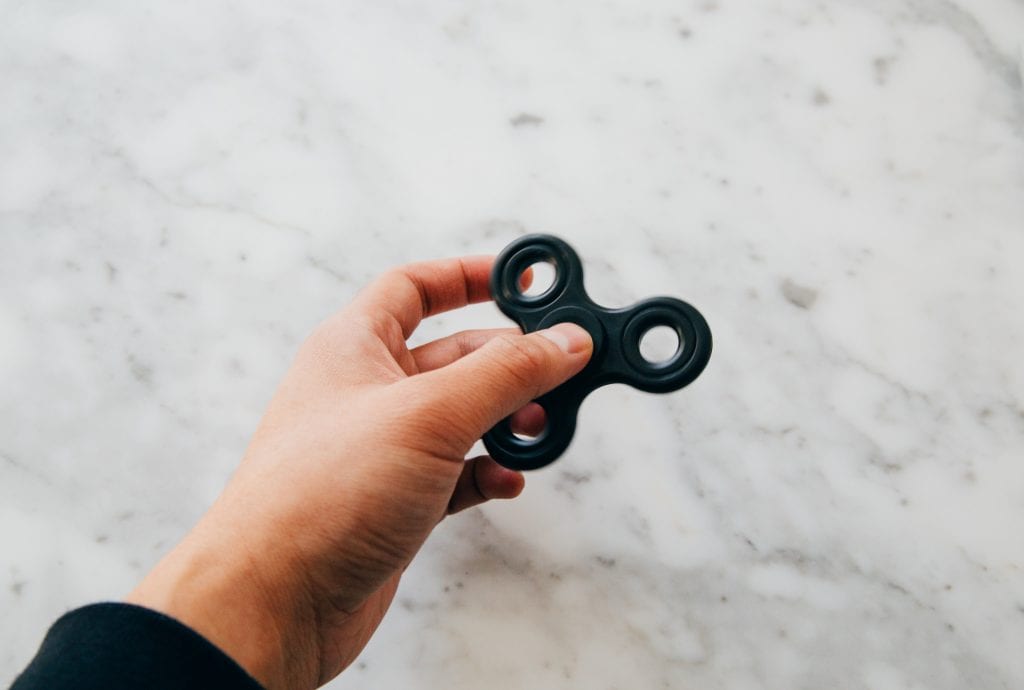
2. Educate yourself about helpful strategies for managing anxiety
There are lots of helpful strategies for managing signs and symptoms of anxiety. You may not know what will be specifically helpful for your loved one, but it can be good to have a few strategies to try.
Candle breath
This strategy helps your loved one focus on their breath by imagining that they are trying to make a candle flicker. Help them breathe in deeply and slowly by counting to three, and then encourage them to breathe out again slowly, while visualising the flickering flame.

Related: STRATEGIES FOR MANAGING ANXIETY
Mindfulness & meditation
The candle breathe exercise is a type of mindfulness exercise, but there are many more strategies you can try to help focus someone on the present moment and calm their anxious feelings. Other exercises you could try include:
- A body scan;
- Five sights, four sounds, three touch, two smell and one taste;
- A verbal list of things you are thankful for.
Mastery and achievement activities
Providing your loved one with a small mastery activity can be a helpful way to break the anxious thoughts. It is important to keep the tasks simple and achievable, such as having a shower, drinking a bottle of water, going for a short walk or colouring a picture.
3. Be aware of additional support resources
If you feel like your loved one’s symptoms of anxiety are out of your control, it may be helpful to connect them with additional support resources.
Helplines like Lifeline (13 11 14) and Headspace (1800 650 890) can provide round-the-clock advice and support. You may even benefit from speaking to someone yourself – they can provide helpful advice and tips on how to help your loved one. Beyond Blue also provide a comprehensive list of support contacts: click here to see them.
If you are concerned about someone’s safety or are seriously concerned about their emotional or physical wellbeing, do not hesitate to contact 000 or your nearest emergency service.

4. Help them receive professional support
One in seven Australians will experience anxiety every twelve months, making it the most prevalent mental health condition in the country. These conditions account for almost 12% of our national disease burden, yet could be “improved by current treatment, rehabilitative and preventative efforts”.
With appropriate treatment and support, anxiety disorders can be well managed. One of the first steps to seeking treatment is to contact a therapeutic treatment provider that can help.
Related: TREATMENTS FOR ANXIETY
A psychologist
A psychologist or counsellor may be an extremely helpful professional support who will know how to help someone with anxiety. A therapist is specially trained in mental health conditions, the management of triggers and symptoms, as well as numerous tools and strategies for recovery.
One of the most effective ways you can help your loved one is to help connect them with a suitably qualified psychologist or therapist, and ensure they attend their sessions as often as necessary.

A residential treatment rehab program
The Banyans Health and Wellness is a private treatment residence for those experiencing anxiety disorder and other co-occurring conditions. Although an intensive program may not be right for everyone, it is a suitable option for those wanting multidisciplinary treatment for mental health conditions.
5. Offer practical help
When people are ill with flu, we are often willing to offer a helping hand. Maybe a meal, their washing or a trip to the park with the kids. These gestures are just as appreciated when someone is experiencing an anxiety disorder. Offering our practical help can extend kindness in a way that is tangible and much appreciated – especially if the signs and symptoms of anxiety are making it difficult to engage in our everyday lives.
Helping Someone With Anxiety: There’s More You Can Do Than You Realise
Did you know that almost half of all enquiries to The Banyans come from those supporting others – especially those helping someone with anxiety. You are able to help your loved one seek the support they need to live well again.
Don’t let an anxiety disorder rob them of their chance to live a fulfilling life. The Banyans can help them regain control over their anxiety, and pursue life with resilience. Call our expert team for a confidential discussion 24/7 on 1300 226 926, or make an enquiry below.


